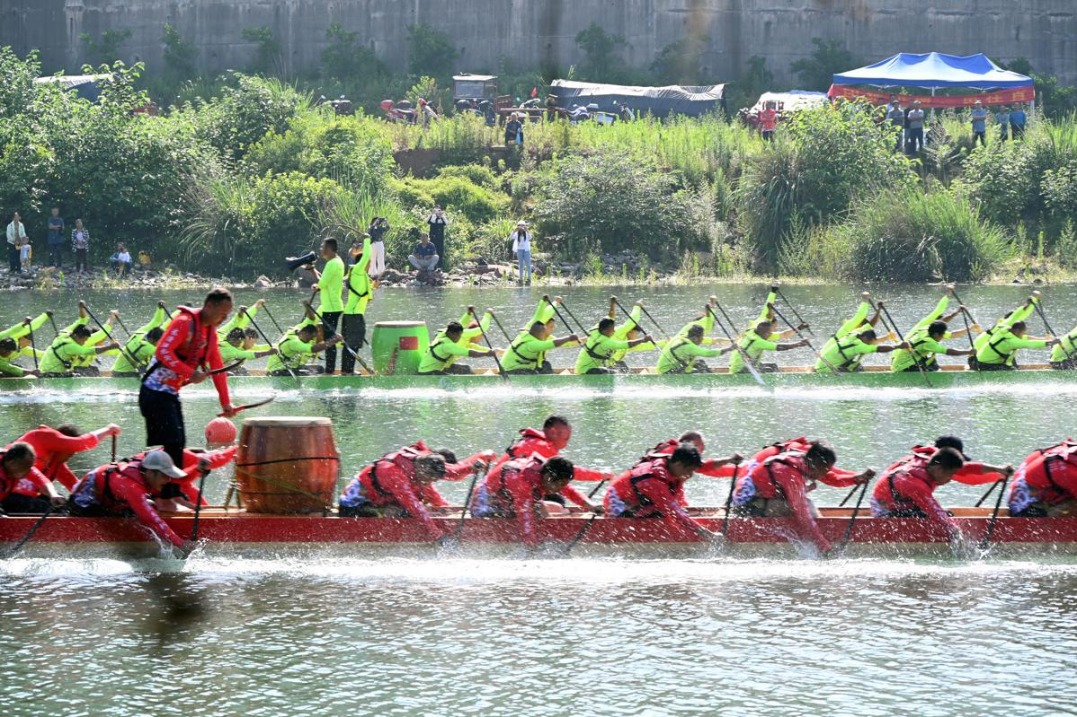Green tribunals make dispute resolutions easier

The quality of judicial handling of environmental cases in the Yangtze River basin has markedly improved in recent years, thanks to the rollout of specialized judicial bodies, China's top court said on Wednesday.
Since the Yangtze River Protection Law came into effect in March 2021, 982 specialized tribunals have been established in courts across the basin, including in cities such as Chongqing, Nanjing in Jiangsu province, Kunming in Yunnan province and Chengdu in Sichuan province, to enhance professionalism in environmental adjudication, the Supreme People's Court said.
Collegiate benches and mobile trial stations have also been set up in key ecological areas, including the river's source, tributaries and surrounding nature reserves. These efforts have helped build a comprehensive and professional adjudication system covering the entire basin, the court said.
Courts in Chongqing and in Hubei and Zhejiang provinces were highlighted for their use of expert databases, digital technologies and online platforms to improve the quality and efficiency of case handling.
"The goal of optimizing judicial services is to strengthen environmental protection and promote high-quality development in the river basin," the court said.
To support the implementation of the law, the top court has issued or revised 22 judicial interpretations on environmental crimes, public interest litigation and punitive damages, aiming to crack down on polluters with tougher penalties.
Over the past four years, courts in the Yangtze basin concluded about 457,400 environmental disputes, nearly 86,000 of which were criminal cases. Offenders included individuals and organizations that illegally dumped hazardous waste, discharged wastewater through hidden pipes, polluted via ships or engaged in illegal fishing.
In Sichuan province alone, courts handled more than 1,900 illegal fishing cases over the past four years, with over 3,300 individuals punished.
Courts have also intensified efforts to curb biodiversity crimes. In Qinghai province, harsher penalties for poaching Tibetan antelopes have helped protect biodiversity at the river's source.
The court noted that China's judicial crackdown on pollution has been ongoing for over a decade. These sustained efforts have led to a decline in environmental cases, while also strengthening the country's legal framework for environmental protection.
Last year, courts nationwide concluded 219,000 environmental cases — a 5.4 percent year-on-year drop — according to the court's annual work report in March.
While continuing enforcement of the Yangtze River Protection Law and the newly enacted Yellow River Protection Law, China is also working on a broader environmental code.
The draft code, which includes principles on river basin management, natural resources and biodiversity protection, underwent its first reading by the national legislature in April.
caoyin@chinadaily.com.cn
- Green tribunals make dispute resolutions easier
- What they say
- China's legal aid institutions handle 180,000 cases for minors in 2024
- Senior CPC official attends meetings in Russia
- Aviation event showcases world of futuristic low-altitude economy
- Gathering helps foster friendship between Japanese, Chinese students




































